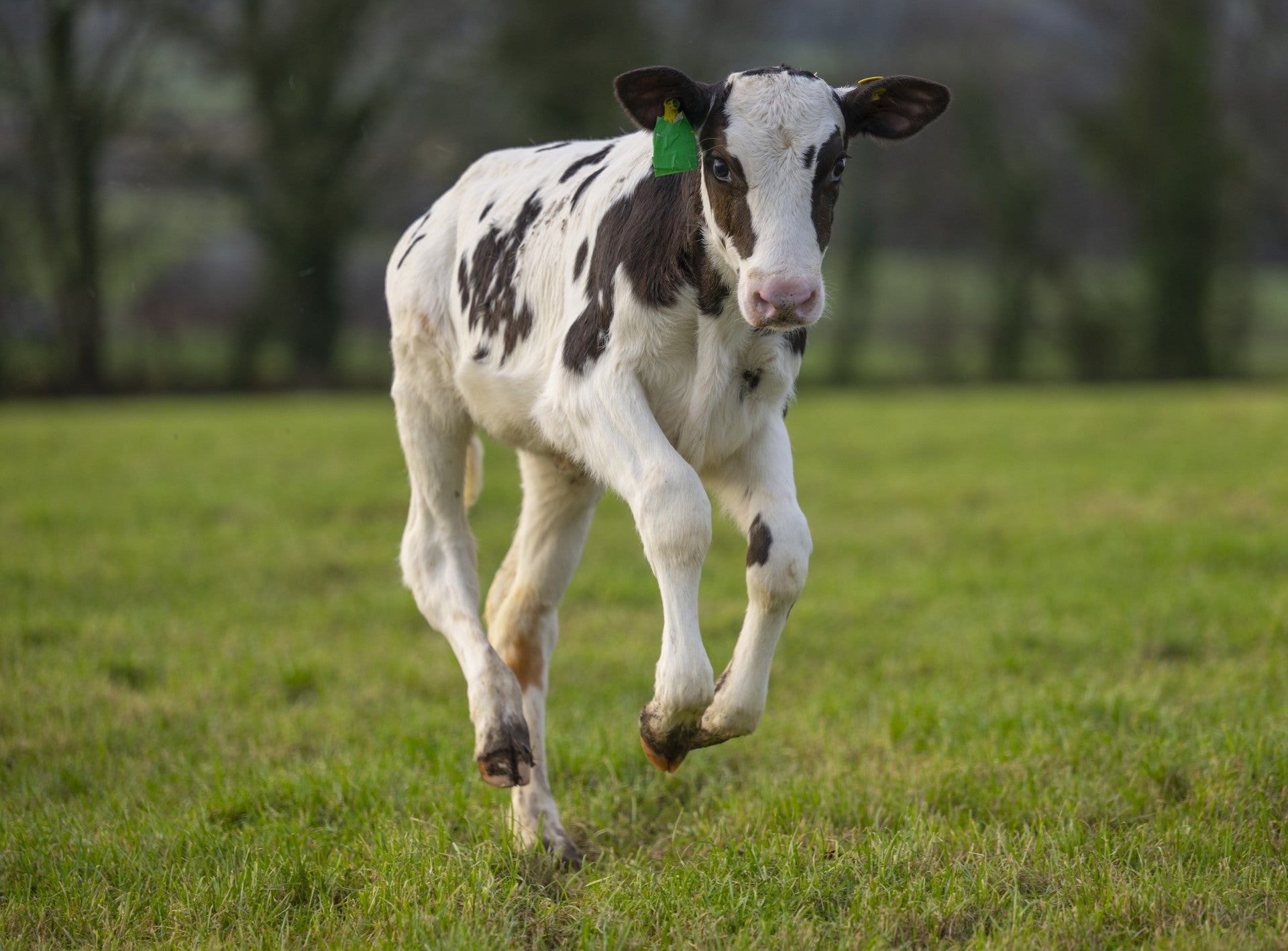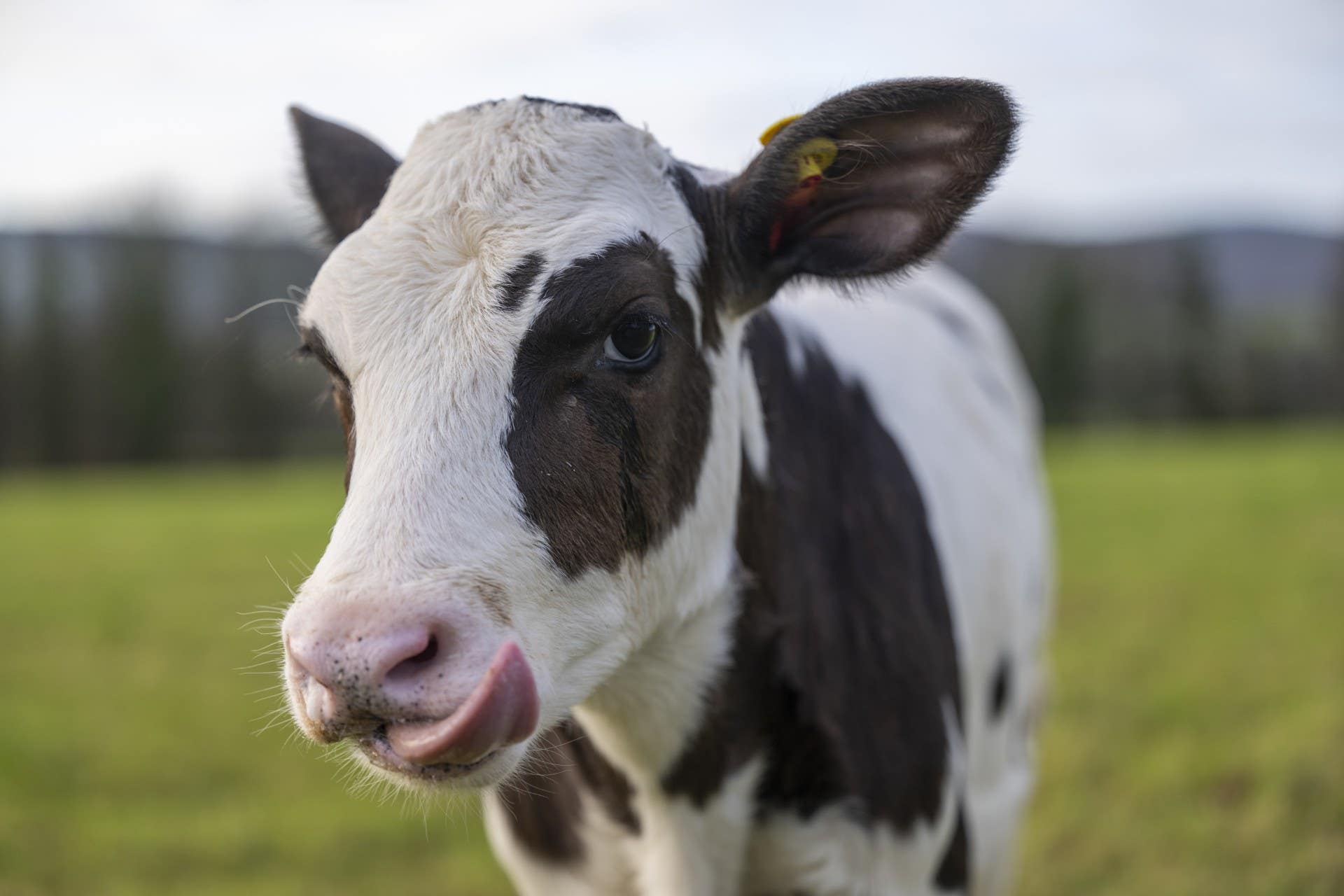The birth of one cow could change the UK’s dairy industry forever

Your support helps us to tell the story
From reproductive rights to climate change to Big Tech, The Independent is on the ground when the story is developing. Whether it's investigating the financials of Elon Musk's pro-Trump PAC or producing our latest documentary, 'The A Word', which shines a light on the American women fighting for reproductive rights, we know how important it is to parse out the facts from the messaging.
At such a critical moment in US history, we need reporters on the ground. Your donation allows us to keep sending journalists to speak to both sides of the story.
The Independent is trusted by Americans across the entire political spectrum. And unlike many other quality news outlets, we choose not to lock Americans out of our reporting and analysis with paywalls. We believe quality journalism should be available to everyone, paid for by those who can afford it.
Your support makes all the difference.Vets and scientists have welcomed the “hugely significant” birth of a calf using IVF, saying it could accelerate the dairy industry’s journey to net zero.
The calf, named Hilda, is part the Dumfries-based Langhill Herd, which has been a source of data for the UK dairy industry for more than half a century.
As well as being the first in the 16th generation of the herd, Hilda is its first member to be born using IVF (in vitro fertilisation).
Scientists on the project said using the technique, which involved Hilda’s mother’s eggs being fertilised in a lab, meant the next generation of the herd arrived eight months earlier than was previously possible.
With the process to be repeated, scientists said it would double the rate of “genetic gain” in the herd, and so speed up the process of selecting and breeding more “methane-efficient” animals.
Professor Richard Dewhurst, from Scotland’s Rural College (SRUC), which is one of the partners in the project, said: “With global consumption of dairy produce continuing to grow, breeding livestock for sustainability is extremely important.
“The birth of Hilda is potentially a hugely significant moment for the UK dairy industry.
“We will use a new genomic assessment alongside existing production and environmental efficiency indices to select elite, methane-efficient heifers for breeding.
“The Cool Cows project will produce a greater number of offspring from these donors, rapidly establishing a nucleus of highly methane-efficient calves.”
The Langhill Herd, which was first established in the early 1970s, is the focus of the Langhill breeding study, the world’s longest-running livestock genetics project.
The herd has been used in a number of studies into the greenhouse gas emissions associated with dairy production, including around the effects of different diets, and the impact of different fertilisers on grasslands.

Rob Simmons from the Paragon Veterinary Group, another partner in the project, said genetically improving the “methane efficiency” of dairy cows was “key” to improving the sustainability of the sector.
“Paragon were delighted to help develop and deliver this important project to help support sustainability in the dairy sector,” he said.
“Genetic improvement in methane efficiency is going to be key to continuing to provide nutritious food to the public, while controlling the impact of methane emissions on the environment in the future.”
Stuart Martin, from Digital Dairy Chain, which funded the project, said: “We are very pleased to have supported this groundbreaking project.
“With the environmental impact of farming being a critical global issue, projects that look for innovative solutions to mitigate this impact are vital to the industry.
“The birth of the first Cool Cows calf marks a significant milestone, promising significant results for the future of sustainable farming.”
The partnership between SRUC, Paragon and Semex received £335,000 from the Digital Dairy Chain’s collaborative research and development grant competition.